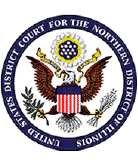Chicago Internet Crimes Attorney
Finding The Right Internet Crimes Defense Lawyer in Chicago
Over the past few decades, internet crimes have become a focus of law enforcement. As people spend large amounts of time using electronic devices in their daily lives, and more and more financial and business activities involve information transmitted online, more people are being affected by scams, fraud, and other crimes involving the internet. Because these offenses may result in significant financial losses, as well as personal harm in some cases, law enforcement officials are putting more resources toward investigating the prosecuting internet crimes. Anyone who is facing these types of charges will need to understand the steps they can take to defend themselves and protect against the consequences of a conviction.
At the Law Offices of James F. DiQuattro, we provide experienced legal representation in cases involving allegations of internet crimes in Chicago and Cook County. Our experienced criminal defense attorney has a strong understanding of the laws that play a role in these cases and the potential defenses that may be available. We can provide guidance on how to respond to investigations, the forms of digital evidence that may play a role in a case, and the best strategies to use to secure a dismissal or receive a reduction in charges. Our goal is to help you achieve an outcome to your case that will allow you to avoid serious penalties.
Computer and Internet Crimes in Illinois
There are a wide variety of criminal offenses that may involve online communications, data transmitted over the internet, or access to computers or online accounts. Some of the most common charges related to the internet include:
- Computer tampering or hacking - A person may be accused of illegally accessing someone else's computer or network. This may be done for the purpose of obtaining or stealing information, gaining access to someone's online accounts, causing harm by damaging or destroying someone's computer systems or data, or gaining control of a system in order to spread viruses or further online scams. Illegally accessing a computer or network is a Class B misdemeanor, which could result in a sentence of up to six months in prison and a maximum fine of $1,500. Hacking into a computer or network to gain data or obtain services is a Class A misdemeanor, which may lead to a one-year jail sentence and a maximum $2,500 fine. Damaging a computer system, altering or deleting data, or otherwise causing losses for a computer's owner or users is a Class 4 felony, which can be punished by a sentence of one to three years in jail.
- Computer fraud - Accessing a computer system, program, or data through the use of deception or with the intent of committing fraud is a more serious form of hacking that can lead to increased charges. These charges may apply if someone allegedly used deception to gain access to a person's accounts, such as by creating a fake website meant to capture login information for people's bank accounts. When this offense involves a scheme to defraud someone, Class 4 felony charges may apply. If an offense involved damage to a computer system or the theft or alteration of data, a person may be charged with a Class 3 felony, and they could potentially be sentenced to between two and five years in prison. If a person used these methods to obtain control of someone else's money or property, the specific charges will depend on the amount involved. In cases involving less than $1,000, a person may be charged with a Class 4 felony, while Class 3 felony charges will apply in cases involving $1,000 to $50,000. For computer fraud involving more than $50,000, a person may be charged with a Class 2 felony, and if convicted, they may be sentenced to three to seven years.
- Identity theft - This offense involves accessing and using someone else's personal information without their permission. Someone's identifying information may be obtained by illegally accessing their computer or online accounts, and this information may be sold to others or used to commit offenses such as fraud. When identity theft involved the use of a person's information to commit a felony, it may result in Class 3 felony charges. In other cases, the charges for identity theft may range from a Class 4 felony to a Class 1 felony based on the value of goods or services obtained through the use of someone's personal information.
- Internet sex crimes - There are a variety of sexual offenses that may be committed through the use of the internet. In many cases, these offenses allegedly involve harm to children, and they are taken very seriously. Crimes such as indecent solicitation of a child or possession or distribution of child pornography will often result in high-level felony charges.
Contact Our Cook County Internet Crimes Defense Lawyer
With an increased focus on crimes related to computers and the internet, it is important for those who have been accused of hacking, computer fraud, identity theft, or other internet crimes to seek legal advice and representation. Our experienced computer crimes defense attorney will work hard to protect your rights and help you achieve the best possible outcome to your case. Contact our office today at 312-627-9482 to set up a free consultation and get the legal help you need.
















